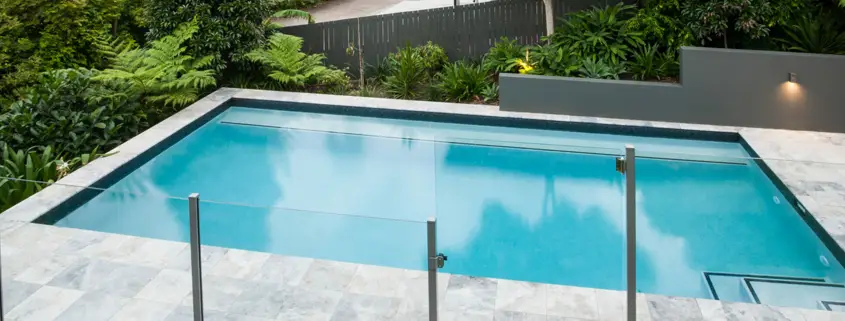At Complete Glass we are glazing experts.
With a variety of glazing types on the market and we know it can be confusing to know which is right for your project. Glazing comes in various thicknesses, energy performance enhancements, colour tints and decorative films we are here to guide you to the correct solution for your project.
In this post we will be discussing size considerations for window wall glazing, the most appropriate glazing for thermal performance and safety, glass options for decorative and privacy applications and unique glass types with technological advancements.
The Size Of Your Windows Matter!
In Sydney, the most noticeable attribute of window walls is their size and span. Glass can now be fabricated to full story heights and wall to wall expanses to form very large openings.
The size of the individual window units is only retrained by the fabrication capacity of the glass manufacturer. The rise in technology and fabrication ability have pushed the limits on the size of glass.
You may have some some modern houses showcasing full floor to ceiling panels of glass which were once though inconceivable. Although these windows have a great visual appeal, they also come at a higher cost. Simply put, the larger the unit of glass, the higher the price.
It is recommended by most Sydney window manufacturers to stay below 4.6m2 of glass per unit. Anything more than this and the costs will start to rise. It is also important to note that very large pieces of glass could limit the number of glass fabricators that can make the piece of glass itself.
It’s important to note that big operable windows or doors are not only limited by the glass fabrication company but also the window and door hardware. The capacity of hardware will be vital to the weight and proportion of the unit getting bigger and heavier.
Great the Layers = Greater the Efficiency
It is common that most modern windows are made up of double or triple-paned units. Windows that are multi-paned (2-4 layers of glass) have either an air or gas-filled layer between each individual sheet. This filler layer adds extra insulation and enhances the thermal performance of the entire glass panel. These insulated glazing units are sometimes called IGUs for short.
It is common for most window wall manufacturers to use double paned IGU’s for their standard window assembly. Most single paned windows aren’t energy efficient enough. If you are concerned with the energy loads you should consider triple-paned windows or choosing higher performing glass panels as we will describe below.
What Glass Is Best For Thermal Protection?
As windows do no have a great thermal performance in comparison to solid walls, most glass manufacturers are working towards technological advancements to make windows more sustainable and energy efficient. Most windows companies now offer a wide range of windows that are energy efficient.
Below are the most common glazing options to improve thermal performance:
Low-Emissivity (Low-E) Glass – This is glass that has a special invisible coating to reflect and block out heat, all while minimising UV rays from passing through the glass.
Reflective Glass – This is glass that has been treated with a metallic coating to help reflect heat and radiation rather than absorbing it. Reflective glass reduces heat gain and visible light transmission. There are two methods that are used to do so, colour tints and reflective films.
Colour tinted glass – This is glass with small colour additions such as bronze, green, blue or grey. It can help to regulate solar heat gain by absorbing the heat. The colour is homogenous throughout the expense of glass and will not affect the basic properties of the glass itself except for solar energy transmission.
Reflective films – This involves a reflected film that is applied to one side of the glass to decrease solar gain. This in turn reflects more light and often has a mirror effect.
Of these two options it is most common for Low-E glass to be used on window wall project and manufacturers usually provide this as a standard for a range of window systems to help reach the energy requirements of today’s codes. Reflective glass is generally used in the commercial sector for storefront systems and curtain walls.
Safety Glazing Options For Window Walls
When designing a Sydney window wall system you must also consider its safety. As we know, glass is sharp when it is broken, therefore there are ways to minimise hazards associated with glass breakage, using tempered and laminated glass options.
Tempered Glass – This is a type of safety glass that is stronger both physically and thermally to normal glass. When this type of glass is broken it shatters into granular pieces instead of splintering into jagged shards of glass. The tempering process makes the outer surfaces into compression and the inner surfaces but tension. These granular pieces are far less likely to cause injury.
Laminated Glass – This safety glass holds itself together when it is broken or shattered. It has a special interlayer that sticks between the glass layers.
Decorative & Other Types Of Unique Glass
In addition to temperature regulating and safety options for window glazing, there are also a variety of decorative Sydney window options for privacy and other features. These are not standard or traditional window wall systems so you may need to request and enquire.
Some include:
Translucent Glass – This is achieved with sandblasting, acid etching or applying a specific film to make the glass less transparent for privacy or decorative reasons.
Self-Cleaning Glass – This is glass that has a chemical coating that reacts with the daylight to minimise and break down organic dirt. It cleans itself via both daylight and rain.
Bird-Friendly Glass – This glass is patterned with a UV reflective coating. It is visible to birds but not to the human eye therefore it remains translucent to us.
Electrochromic Privacy Glass – This glass can turn opaque or translucent with the flick of a switch (electrodes are installed to the inside of the glass and when an electric current runs through it, the ions react and move to reflect light). It is most commonly used for privacy reasons.

About Complete Glass –
Complete Glass has been delivering premium glazing solutions to Sydney for over 10+ years! Starting out in Western Sydney, we quickly grew and begun servicing the inner West and then central Sydney. Our commitment to quality finishes, professional craftsmanship and friendly service has seen our business grow rapidly in the past five years. We would love to hear from you and help with any glazing project you may have in mind. Please do not hesitate to get in touch with us via 1300 147 247 or alternatively you can email us via our contact form >



